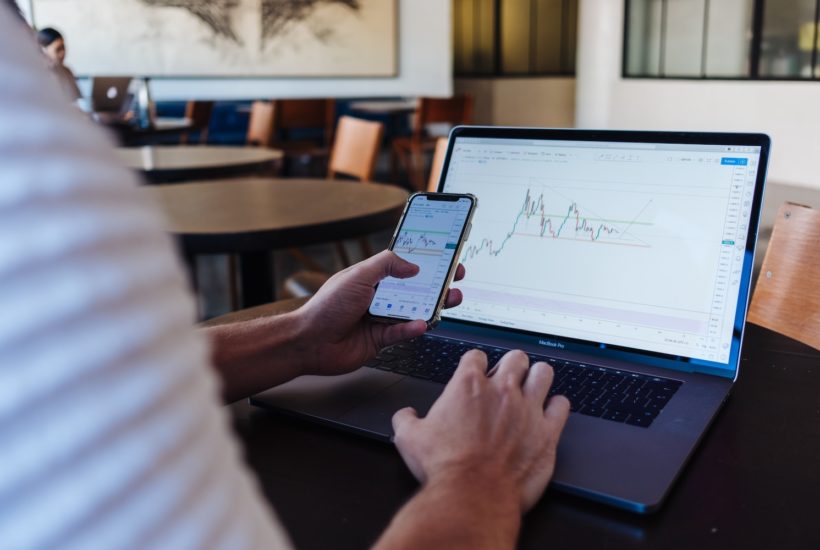Africa
The Eco could strangle the growth of SMEs in Africa
In the transition from the CFA Franc to the Eco, the maintenance of a fixed parity with the Euro is a “sieve” for unlimited capital transfers, pointed out the eminent Ivorian economist Daniel Anipko. He described the Eco as an “economic suicide currency.” and added that neither the French Franc nor the Euro protected the stability of the CFA franc in the past.

“The Eco currency is a bad currency, a currency of economic and social suicide of populations,” said Daniel Anipko on Tuesday, January 7, in an interview with Ivorian media in Abidjan. Mr. Anipko feared, in particular, that “the danger of the fixed parity and unlimited capital transfers associated with the prudential credit policy which is sowing the seeds of monetary scarcity and the financial asphyxiation of SMEs.”
According to him, the mechanisms that have remained in place comfortably remunerate France for its “fictitious guarantee” of the Eco , because in the past neither the French Franc, nor the Euro today “have not protected the stability of the CFA franc.”
The Born2Invest mobile app delivers breaking news and trusted, in-depth reporting from Africa. Get all economic news, business strategies, and many other trending news for you to keep informed.
The history of the CFA franc
Daniel Anipko recalled that in ‘94, the devaluation of the CFA franc occurred because France was unable to guarantee this currency before asking “How much has the guarantee of the CFA franc cost France in sixty years? And how much are the unlimited massive transfers it has received?”
Mr. Anipko, former Ivorian Minister of Trade and Industry, said the name change from CFA Franc to Eco and its modifications are “insignificant compared to the backbone of the former CFA Franc which has remained intact.”
“This new iteration of the CFA Franc will continue to maintain the limitation of credit to SMEs and the national economy, at 25% of bank credits and therefore inherits the old prudential credit policy of the CFA Franc agreements, at the origin of the monetary shortage,” he continued.
Consequently, the Eco will keep the Uemoa (West African Economic and Monetary Union) countries in “the vicious circle of underdevelopment, low wealth production, low savings, low investment,” Daniel Anipko continued. In addition, the relocation of the operating account and the withdrawal of French Treasury representatives from the Boards of Directors of central banks are certain changes, but they “do not amount to anything,” the Ivorian economist noted.
The reform of the CFA franc that gave birth to the Eco resulted, in December 21, 2019, in Abidjan, in the signing of a new monetary cooperation agreement between the President of the Council of Ministers of Uemoa and the French Minister of Economy and Finance.
Despite the concerns of Anipko many consider the Eco to offer a new opportunity for African nations to build a better future together. There are also concerns that a return to national currencies could inhibit international cooperation and the creation of the West African Economic and Monetary Union. Many consider this union to be vital for the future prosperity and stability in the region.
The economist Daniel Anipko is the author of the book “The Mega-Economy,” which earned him a place in the list of the 2,000 leading intellectuals of the 21st century by The International Biographical Centre in Cambridge, Great Britain. He is the inventor of the economic model “The Mega-economy.”
__
(Featured image by Jason Briscoe via Unsplash)
DISCLAIMER: This article was written by a third party contributor and does not reflect the opinion of Born2Invest, its management, staff or its associates. Please review our disclaimer for more information.
This article may include forward-looking statements. These forward-looking statements generally are identified by the words “believe,” “project,” “estimate,” “become,” “plan,” “will,” and similar expressions. These forward-looking statements involve known and unknown risks as well as uncertainties, including those discussed in the following cautionary statements and elsewhere in this article and on this site. Although the Company may believe that its expectations are based on reasonable assumptions, the actual results that the Company may achieve may differ materially from any forward-looking statements, which reflect the opinions of the management of the Company only as of the date hereof. Additionally, please make sure to read these important disclosures.
First published in IMCongo, a third-party contributor translated and adapted the article from the original. In case of discrepancy, the original will prevail.
Although we made reasonable efforts to provide accurate translations, some parts may be incorrect. Born2Invest assumes no responsibility for errors, omissions or ambiguities in the translations provided on this website. Any person or entity relying on translated content does so at their own risk. Born2Invest is not responsible for losses caused by such reliance on the accuracy or reliability of translated information. If you wish to report an error or inaccuracy in the translation, we encourage you to contact us.

-

 Crypto5 days ago
Crypto5 days agoBitcoin Traders on DEXs Brace for Downturn Despite Price Rally
-

 Business2 weeks ago
Business2 weeks agoDebt-Fueled Markets, Zombie Corporations, and the Coming Reckoning
-

 Crowdfunding2 days ago
Crowdfunding2 days agoFrom Confiscation to Cooperation: Funding Casa de la PAZ’s Social Transformation
-

 Impact Investing1 week ago
Impact Investing1 week agoGlobal Energy Shift: Record $2.2 Trillion Invested in Green Transition in 2024




![RDE, Inc. [ OTC: RSTN ] is set to soar in a perfect storm](https://born2invest.com/wp-content/uploads/2024/02/pexels-burak-the-weekender-187041-400x240.jpg)
![RDE, Inc. [ OTC: RSTN ] is set to soar in a perfect storm](https://born2invest.com/wp-content/uploads/2024/02/pexels-burak-the-weekender-187041-80x80.jpg)


















